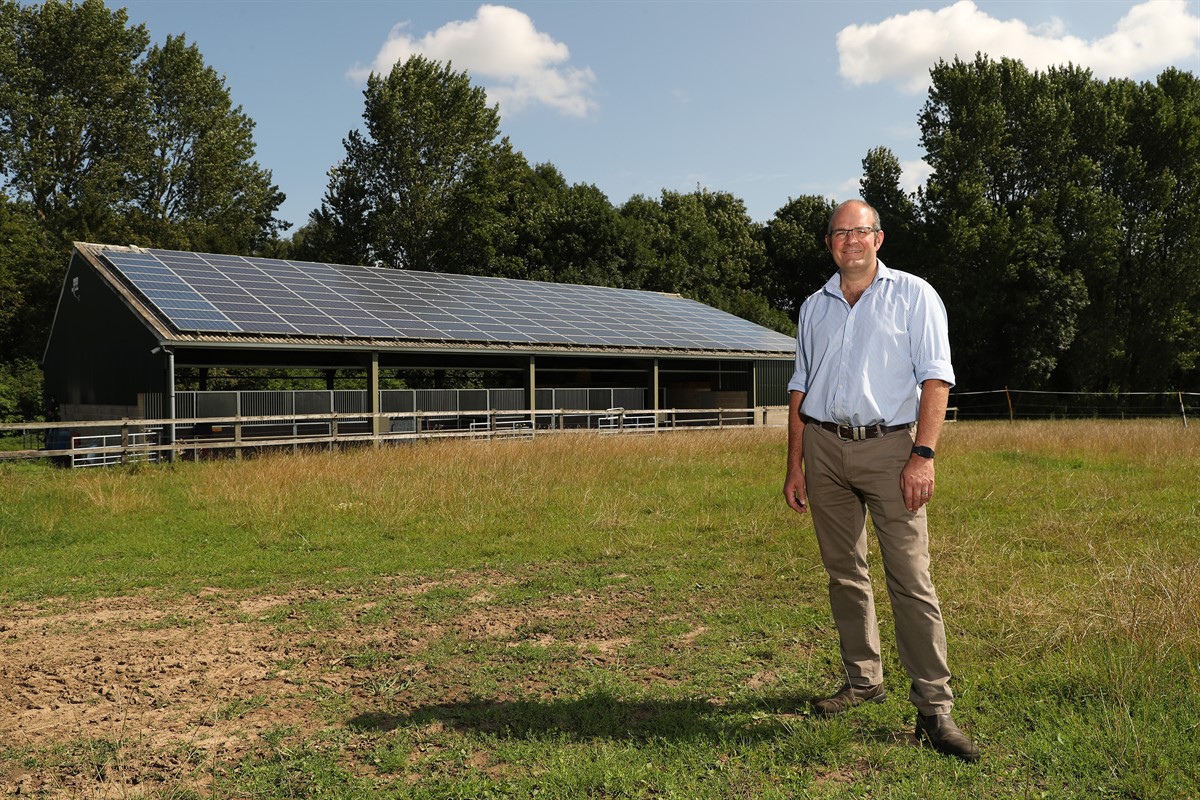However, the NFU believes it falls short when it comes to short-term measures.
Key elements of the strategy
The strategy largely focuses on medium to long term measures, including:
- Streamlining the planning process for offshore wind power – the strategy does not list similar reforms on onshore wind.
- A programme of new nuclear power stations – these would only start to generate electricity from the mid-2030s.
- Increase domestic oil and gas production – this takes years to develop and conflicts with the government’s own Net Zero Strategy.
Solar
"In order to give farmers the confidence to continue to produce food at scale, we need to see policies which reflect the importance of gas and electricity for food production and immediate measures to boost energy efficiency."
NFU Deputy President Tom Bradshaw
One part of the strategy is positive for NFU members: the ambition to accelerate solar PV deployment, potentially growing from 14,000 megawatts today by up to 5 times by the year 2035.
Opportunities
There are huge opportunities to utilise the thousands of farm buildings across the country to provide local electricity. Once battery power develops further, this will enable many farms to meet their own energy demands.
Planning rules
These will be strengthened in favour of development on non-protected land or lower value land, where possible. This will support solar that is co-located with agriculture to maximise the efficiency of land use.
Development rights
Further extension of permitted development rights for rooftop solar is promised, along with performance standards to integrate solar PV in new buildings.
What’s missing?
There is an absence of policy measures to support energy efficiency investment, such as:
- Interest-free loans
- Improved tax allowances
- Investment in on-site energy storage – for example batteries to support electric vehicle charging
NFU response
NFU Deputy President Tom Bradshaw said: “This strategy was a chance to align long-term net zero policy with immediate solutions to the energy crisis, but it does little to alleviate the pressures spiralling energy costs are placing on UK food production now, nor on the many businesses and households facing eye-watering gas and electricity prices.
“This is a time when we need to be producing more to bolster UK food security, yet energy costs and availability issues have caused areas of UK food production to contract and fertiliser prices to rocket, with prices now 250% higher than this time last year.
“In order to give farmers the confidence to continue to produce food at scale, we need to see policies which reflect the importance of gas and electricity for food production. We also need immediate measures to boost energy efficiency and fast-track renewables like solar and on-shore wind power, which farmers are well placed to help deliver.
“It is time our government recognised what the whole UK food supply chain has been saying for months – that food security needs to be a priority so we can continue to produce nutritious, affordable food for the country, especially during times of global unrest.”
Agricultural needs
The NFU had already identified many measures which, if they were included in the strategy, could help UK farmers continue to produce food at scale, including:
- Boosting energy efficiency with the consistent backing of HM Treasury – including processes, resource efficiency and buildings.
- Fast-tracking of on-site renewables like solar and onshore wind power – through revised planning guidance and more resources for local planners.
- Better regulation that enables efficient return of agricultural nutrients to land – through investment in slurry storage, composting and anaerobic digesters.
- Kick-starting the UK market for green hydrogen from renewables – this could partly replace fossil natural gas in the network.
